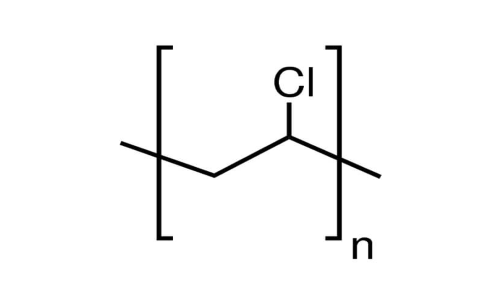Polyvinyl chloride (alternatively: poly(vinyl chloride), colloquial: polyvinyl, or simply vinyl; abbreviated: PVC is the world's third-most widely produced synthetic polymer of plastic (after polyethylene and polypropylene)Polyvinyl chloride, or PVC, is a widely used plastic material. It's a lightweight and durable synthetic polymer, often formulated for specific needs like flexibility or water resistance. PVC's versatility makes it a popular choice in construction (pipes, window frames), consumer goods (clothing, toys), and packaging, but there are environmental considerations regarding its production and disposal.

| CAS Number: | 9002-86-2 |
| UN Number: | None |
| Hazard Class: | None |
| Packing Group: | None |
What is the CAS Number of Polyvinyl chloride?
The CAS number of Polyvinyl chloride is 9002-86-2
What is the UN Number of Polyvinyl chloride?
Polyvinyl chloride does not have a UN number.
What is the Hazard Class of Polyvinyl chloride?
Polyvinyl chloride does not have a hazard class.
What is the Packing Group of Polyvinyl chloride?
Polyvinyl chloride does not have a packing group.
Physical properties of Polyvinyl Chloride
Safety information for Polyvinyl Chloride
You can find comprehensive safety details for Polyvinyl chloride in our MSDS (Material Safety Data Sheet.) This document includes important information on accidental spills, first aid, fire response, handling and storage guidelines, personal protective measures, and more. Make sure to familiarise yourself with the potential hazards associated with handling this material.
FAQs
Our shipping solutions are tailored to meet the needs of your specific Polyvinyl chloride needs, taking into account quantity and destination. We provide personalised quotes to ensure smooth supply chain and logistical processes.
Simply share your specific requirements with our sales team, and we will ensure they are met.
Yes. No matter your location – Europe, Asia, or beyond – we possess the expertise to get your chemicals exactly where you need them. If you’re looking for Polyvinyl chloride delivery and want to talk it through, contact us today.
In most cases, PVC itself shouldn't cause serious harm. However, if dust from PVC is inhaled, move the person to fresh air and administer CPR if necessary. For skin or eye contact, wash thoroughly with soap and water. If PVC is swallowed, rinse the mouth with water but do not induce vomiting. If you experience any concerning symptoms after exposure, seek medical attention.
When handling PVC, avoid creating dust and wear appropriate protection like gloves and a dust mask to prevent inhalation.
Store PVC in a cool, dry, and well-ventilated place. Most importantly, PVC fires can release hazardous gases like carbon oxides and hydrogen chloride. In case of a fire, use water spray, a fire extinguisher, or wear breathing apparatus if necessary.
IF YOU WANT TO LEARN MORE ABOUT HOW EAST HARBOUR GROUP LTD CAN HELP YOUR BUSINESS, GET IN TOUCH.
